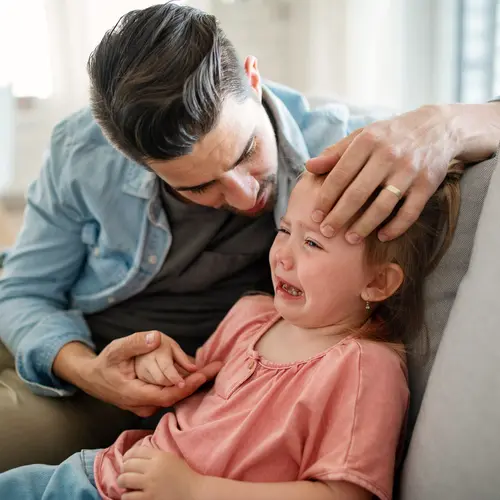When a cell phone, iPod, or battery gets low on power, you recharge it. You also need to RECHARGE your body. The way to do that is with rest and healthy relaxation.
For many families, though, time for rest, relaxation, and sleep often go by the wayside. In many cases, both parents work and the kids are in after-school activities. It all adds up to no time for downtime, says Ronda Rose-Kayser, certified family life educator with Sanford Health, WebMD's FIT educational partner.
Of course sleep is essential to overall good health. But just how does taking time to RECHARGE affect the other parts of the FIT Platform: MOVE, FOOD, and MOOD?
David Ermer, MD, a child psychiatrist with Sanford Health, gives an example. "Screen time -- and that includes TV, computer, even texting -- takes up all our downtime," he says. "It's a very unhealthy activity as far as exercise goes -- and even emotional well-being. People text and tweet instead of talking to one another, so I think there's even some social isolation that goes along with that."
Keep reading to learn the ways that the rest we get impacts what and how much we eat, our energy level, and our mood and emotions.
RECHARGE to Have the Energy to MOVE Your Body
Ever tried to motivate a sleepy kid to get dressed in the morning? Then you know how sluggish a tired child can be. If that child maintains a sleep deficit, he may find it harder to move all day.
A recent small study of adult men compared how likely men were to be active based on how much sleep they got. The results showed a few hours a night made them less likely to be physically active compared with days when they had gotten eight hours of sleep.
It's just common sense -- the more tired we are, the less likely we are to want to expend energy to be active.
Not Enough RECHARGE Time Can Stimulate Your Desire for FOOD
When we don't get ample sleep, it affects our appetite. Studies of adults have shown a link between lack of sleep and a decrease in the hormone leptin, which decreases appetite. Other studies have found that inadequate sleep causes the levels of the hormone ghrelin to rise in adults -- even after just one night of sleeplessness. This hormone increases appetite and makes high-calorie foods look more appealing.
Bottom line? If you want to make it easier for you and your whole family to eat a healthy diet, you all need to RECHARGE. And the most effective way to do that is to set a sleep schedule you can follow. To learn more about the FIT Platform and weight, read FIT Connection: Weight Management.
RECHARGE Makes It Easier to Manage MOOD
Those mornings that you wake up "on the wrong side of the bed" are likely caused from not getting enough sleep the night before. In a study, people who were deprived of sleep for one week became stressed, sad, angry, and mentally exhausted. Another study found that missing just one night of sleep can have an effect on your mood and ability to think clearly. Researchers have also found that people who suffer from chronic insomnia are more likely to develop anxiety and depression. So when it comes to your kids, you'll be helping their emotional and mental health by helping them set and practice healthy sleep habits early on.
Kids who don't learn how to RECHARGE also have a harder time dealing with their emotions. Children don't automatically know what to do in response to their emotions. That's why you see kids cry or scream when they are frustrated because they want something, instead of just asking for it.
It's up to adults to help children learn both how to recognize when they are upset and how to calm themselves down so they can relax. Because every kid is different, you need to find an approach that matches your child's temperament. "Some children are very tactile, so they need to feel something to relax -- maybe it's squeezing Play-Doh, or maybe it's touching a soft blanket," Rose-Kayser says. Older children may simply need to be left alone. "If you have an 8-year-old, for instance, she might just need to hang out in her room for a little while," says Rose-Kayser. Other children need to be active when they're upset to blow off some steam. Rose-Kayser recommends having kids like this throw rolled-up socks into a clothes basket to help ease stress and anxiety.
How to Make Recharging a Priority
When we don't RECHARGE, we are less likely to make healthy choices. "We get in the craziness and busyness of life and don't slow down to think, rest, or sleep,” says Rose-Kayser. “Then it's easy to decrease activity." That can be the start of a vicious cycle. When you don't take time to move your body, your stress and anxiety worsen. That, in turn, can make you sleep less deeply. Similarly, when you're busy and tired, you're more susceptible to the temptation "to turn to foods that we can get quickly from a package even though they aren't that healthy," she says. And "if children don't get enough rest, they can have behavioral issues, so we need to have that bedtime routine as a family."
Yes, that means parents, too. "Kids watch our every move," Rose-Kayser says. So insisting that kids get enough sleep while we burn the candle at both ends probably won't work.
"If children see people in the family following healthy habits, they will follow that lead," she says. It’s helpful to think about what small goals you can set as a family, how to work them into your daily routine, whether you will encounter barriers along the way, and how to overcome those barriers.
It all leads back to a healthy balance. Start with small, healthy choices you can commit to and stick with, and go from there.

